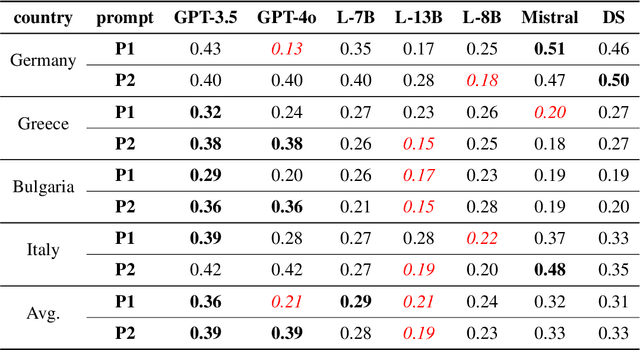Are Large Language Models Chameleons?
Paper and Code
May 29, 2024



Do large language models (LLMs) have their own worldviews and personality tendencies? Simulations in which an LLM was asked to answer subjective questions were conducted more than 1 million times. Comparison of the responses from different LLMs with real data from the European Social Survey (ESS) suggests that the effect of prompts on bias and variability is fundamental, highlighting major cultural, age, and gender biases. Methods for measuring the difference between LLMs and survey data are discussed, such as calculating weighted means and a new proposed measure inspired by Jaccard similarity. We conclude that it is important to analyze the robustness and variability of prompts before using LLMs to model individual decisions or collective behavior, as their imitation abilities are approximate at best.
 Add to Chrome
Add to Chrome Add to Firefox
Add to Firefox Add to Edge
Add to Edge